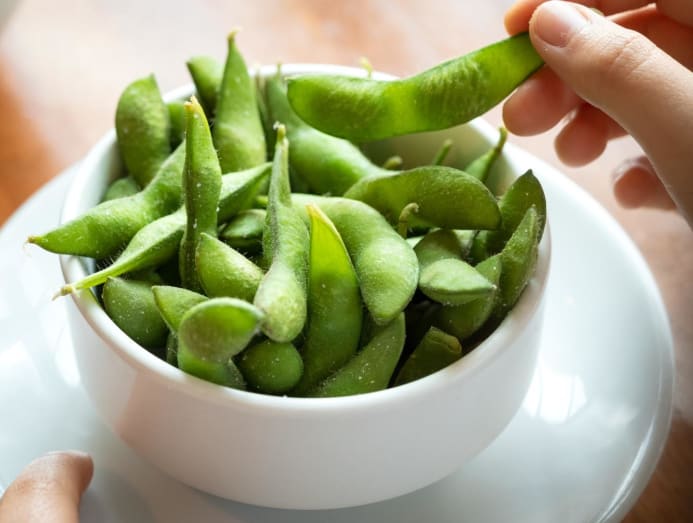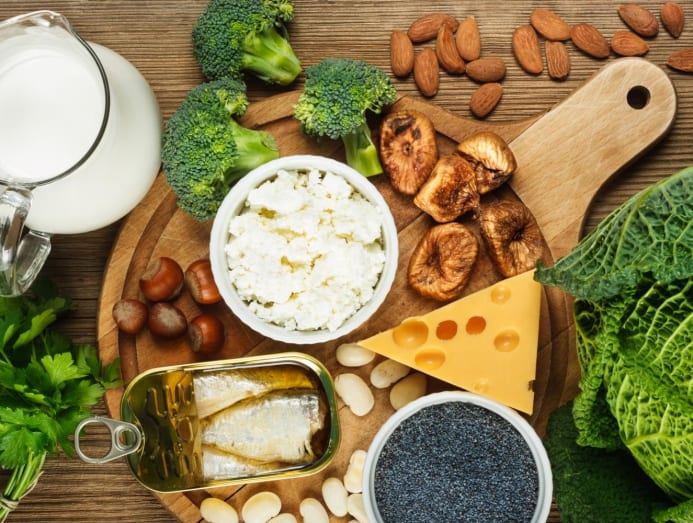Women and menopause: A guide to preparing for the day your periods stop forever
From eating to exercise and identifying the symptoms, here’s everything you need to know about preparing for an easier transition towards the next phase of your life, in this next instalment of CNA Women’s series on menopause.

Do you need to prepare for menopause? Doctors say you should, and the earlier, the better. (Photo: iStock/Doucefleur)
As women, we know that the end of our reproductive years will eventually arrive. A quick Google search about menopause will bring up almost everything you need to know, from the symptoms to what to do about them.
But even with all the information and resources available, how many are actually preparing – or prepared – for menopause?
Then again, do you even need to prepare for menopause?
Doctors say you should. And the earlier, the better.
“Singapore women have increasingly longer lifespans – women are going to live more than a third of their lives after menopause,” said Dr Nau’shil Kaur Randhawa, an obstetrician and gynaecologist from the National University Hospital (NUH).
PERIMENOPAUSE VS MENOPAUSE: WHAT’S THE DIFFERENCE?
“Menopause is the date of your last menses and the diagnosis is a retrospective one based on one year in the absence of menses,” said Dr Vivian Lim, an endocrinologist at Gleneagles Hospital.
This means that a woman who has reached menopause would not have had her period for an entire year.
“The perimenopause and menopause periods serve as a window in which lifestyle and other factors affecting the health of the woman can be adjusted to optimise healthful lifespan as she transits from midlife to the later years,” said Dr Randhawa.

Women actually begin to experience menopausal symptoms before their periods stop completely. This is called the perimenopause and can start in your 40s.
In this phase, symptoms such as hot flushes (or hot flashes), night sweats and weight gain, start to appear, explained Dr Choo Wan Ling, consultant obstetrician and gynaecologist at Choo Wan Ling Clinic for Women.
These symptoms may persist even after the menopause is "official" – that is, in the post-menopausal period, she added.
MENOPAUSE SYMPTOMS: WHAT TO LOOK OUT FOR
“As a woman progresses towards menopause and beyond, she deals with a transition period of changes in various hormones, such as oestrogen and progesterone,” said endocrinologist Dr Lim. These changes start during the perimenopause and progress towards the post-menopause period.
In addition to not having anymore periods, the most common menopausal symptoms are hot flushes, night sweats and mood swings. And NUH’s Dr Randhawa said its severity varies from “mild in most women to severe in others”.
Women may also notice increased dryness, from your skin to your vagina. While it’s a common symptom, Dr Randhawa said that vaginal dryness, if left untreated, can “result in painful intercourse and a loss of interest in having sex”.
Other symptoms: Needing to urinate urgently and frequently, as well as having recurrent urinary tract infections, she said.
Dr Lim added that women may also experience frequent fungal infections in the vagina.
COULD IT JUST BE IRREGULAR MENSES AND NOT MENOPAUSE?
The slowing down of the menstrual cycle during perimenopause may not be so easy to spot in women who have had irregular periods their entire life. But Dr Choo explained that cycle irregularity on its own is not a sign of perimenopause or menopause.
It can be a common occurrence for women on either end of their reproductive life – the very young or more mature, as well as for women suffering from polycystic ovary syndrome or PCOS.

In order to know if you might be perimenopausal, Dr Lim suggested looking beyond irregular periods per se, and taking note of your cycle’s duration and even the character of the menses.
For example, your cycle could be much longer than usual and the menses may be lighter.
Dr Randhawa added that “in perimenopause, the irregular menstrual cycles are often associated with common symptoms of menopause like hot flushes and night sweats”.
MANAGING MENOPAUSE SYMPTOMS: EATING HEALTHILY AND REGULARLY
While you may have been able to get away with eating irregularly or poorly when younger, Dr Arthur Tseng, consultant obstetrician and gynaecologist, urogynaecologist at Gleneagles Hospital, said eating irregular meals can worsen certain menopause symptoms and make weight management more difficult.
“A diet high in refined carbohydrates and sugar causes sharp rises and dips in blood sugar, making one feel tired and irritable, worsening the physical and mental menopausal symptoms,” he explained.
To reduce the triggers that lead to hot flushes, night sweats and mood changes, Dr Tseng advised women approaching menopause to decrease their caffeine and alcohol intake, as well as sugary or spicy foods, especially during the evening.
Some studies have found that diets high in soya can alleviate the severity of hot flushes and night sweats.

And interestingly, Dr Tseng said, in Asian countries, women tend to “have much less troublesome menopausal symptoms, like hot flashes, due to the high consumption of foods rich in phytoestrogen”.
It may be worth eating more soya beans and soya products, tofu, tempeh, flaxseeds, linseeds, sesame seeds and beans.
It may also be worth keeping a journal of your menopause symptoms, added Dr Tseng. “It helps you to figure out which particular foods trigger (or worsen) symptoms, to reduce or avoid consuming them completely.”
GET MOVING: EMBRACE EXERCISE
The combination of waning hormones together with lifestyle changes, genetics and age, makes weight gain even more apparent during menopause, said Dr Tseng. “Excessive body fat, especially around the waist, increases the risk of developing certain diseases and also worsens certain menopausal conditions”.

He added that studies have shown that steady weight loss through a healthy diet and exercise, of about 10 per cent of your body weight (4.5kg or more) over a year, can help eliminate hot flushes and night sweats.
No need to do hardcore marathoning or heavy weightlifting, he said, adding that even pilates, yoga, tai chi and walking are good as long as it’s done regularly.
Dr Choo encouraged women to include resistance training into the mix, to build muscle mass for joint support. “It can also reduce insulin resistance that can lead to diabetes, maintain metabolism and fat burning capacity while reducing the risk of osteoporosis and cardiac health,” she said.
PAY ATTENTION TO YOUR BONE HEALTH
With declining oestrogen levels, osteopenia (bone thinning) and osteoporosis (bone fragility with fracture risk) become more apparent, warned Dr Tseng.
All the doctors CNA Women spoke to say women should pay attention to their bone health as they age, and approach menopause with a diet rich in calcium and vitamin D.
“Calcium is a definite as the Asian diet does not consume much dairy, and we need a minimum diet requirement of 600mg of calcium,” said Dr Choo.
Calcium-rich foods include yogurt, milk, cheese, green leafy vegetables like kale, collard greens and spinach, along with tofu, beans and sardines.

While our bodies do manufacture vitamin D with sun exposure, sometimes we don’t get enough of it. Rich dietary sources of Vitamin D include oily fish, eggs and cod liver oil. You can also consume Vitamin D supplements. “These help to reduce osteoporosis risk when coupled with calcium intake,” said Dr Tseng.
Related:
SHOULD YOU SEE A DOCTOR ABOUT MENOPAUSE?
“Given that this is not a medical condition but a natural process of life, there is no strict guide to seek any medical help,” said Dr Lim.
If you experience symptoms that disrupt your physical, emotional or mental well-being, you should go ahead and consult a doctor early, Dr Randhawa advised.
At the end of the day, it’s important to remember that menopausal changes happen gradually. And while some women experience symptoms during perimenopause when their hormones start to fluctuate, Dr Choo said there are other women who don’t feel anything at all.
So try not to worry or overthink it. “Menopause is a natural progression in life that a woman goes through. It is not a death sentence and it certainly is not a disease. Millions have gone through it without any trauma and undue issues,” said Dr Lim.
CNA Women is a section on CNA Lifestyle that seeks to inform, empower and inspire the modern woman. If you have women-related news, issues and ideas to share with us, email CNAWomen [at] mediacorp.com.sg.









